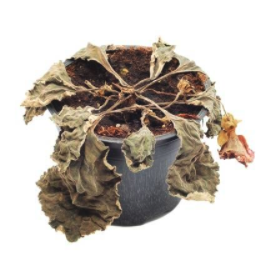We have probably all, from time to time, tried to grow something or figure out what was going on with something that was supposed to grow. It is a simple concept. Yet not always simple to remedy.
What has been your “green thumb” experiences? Are you good with plants? Or is it just not your thing?
Today we look to a parable (vivid illustration of spiritual truth) given by Jesus about a sower. Mark chapter 4…
The Parable of the Sower
1 Again he began to teach beside the sea. And a very large crowd gathered about him, so that he got into a boat and sat in it on the sea, and the whole crowd was beside the sea on the land. 2 And he was teaching them many things in parables, and in his teaching he said to them: 3 “Listen! Behold, a sower went out to sow. 4 And as he sowed, some seed fell along the path, and the birds came and devoured it. 5 Other seed fell on rocky ground, where it did not have much soil, and immediately it sprang up, since it had no depth of soil. 6 And when the sun rose, it was scorched, and since it had no root, it withered away. 7 Other seed fell among thorns, and the thorns grew up and choked it, and it yielded no grain. 8 And other seeds fell into good soil and produced grain, growing up and increasing and yielding thirtyfold and sixtyfold and a hundredfold.” 9 And he said, “He who has ears to hear, let him hear.” – Mark 4:1-9 ESV
If you were going to explain to a co-worker or relative what this section of scripture means, how would you approach it. How would you describe it?
This parable of a farmer sowing seed is a vivid picture of the preaching of the gospel. It explains that the difference in the results all depends on the nature of the human heart that receives the gospel.
NOTE: We must always remember that a parable is not the same as an allegory (very rarely used in the Bible, if at all). In an allegory, every detail has some spiritual significance, while in a parable much of the detail may not be important; it is the story as a whole which conveys the message.
Back to our green thumb experiences; When it gets challenging and nothing seems to be working. We tend to look at the dirt. I know many times in my life I have actually just thrown the whole pot aside and started over. (Usually after spending way too much money trying to make the soil better before giving up).
But the striking difference in the parable and our lives is that we struggle with life, yet we can’t just throw our heart out and start over. For many of us we think that what we got is what we got. This creates a struggle. Many people attend church, listen to sermons and read all kinds of books and blogs wanting to have a fruitful life. Yet the struggle is real.
You know how that looks in the parable…
Farmer comes along, scatters seeds across your heart; couple good thoughts, new insights, no fruit…. come back another week, find another podcast…
Farmer comes along, scatters seeds across your heart; couple good thoughts, new insights, no fruit…. come back another week, find another podcast…
I think you get the point. In our life, many times the struggles with our fruitless life is blamed on the sower. Many times we just think we need more seed thrown our way. But it is not the performance of the sower that determines the fruitfulness of our lives. And let’s be even more to the point. The seed is the seed, is the seed, that does not change, that is the Word.
 Can you relate to times in your life, maybe even now, where you just are not fruitful. Maybe you even feel like your barren, just dirt, unproductive, miserable, or maybe pitiful…
Can you relate to times in your life, maybe even now, where you just are not fruitful. Maybe you even feel like your barren, just dirt, unproductive, miserable, or maybe pitiful…
If we agree that the parable is talking about the human heart, where are we at and what do we know…
- we can’t throw our heart away and get another one.
- the seed (Word) is good
- God wants everyone to receive the seed and be fruitful
What is left? We need to focus on our soil (heart). We should not be relying on more seed or another farmer to come along and change our soil. Let us remember that heart in biblical scriptures is not relating to our physical heart beat, it is referring to our soul, our spirit.
Here is a simple example.
For where your treasure is, there your heart will be also. – Matthew 6:21 ESV
When we treasure something, it is all we think about. It is what we fight for; it is what we defend. We give up other things to retain our treasure. As you can see there is a lot more going on than a simple heartbeat. It has to do with our passion, our thoughts, our hope, or conviction.
What are a few of your insights of the definition of your “heart”?
This week, let’s ask God to scatter some seed in our life that will show us what our heart is. How is our heart defined. We have to understand what our heart is, how it relates to our life and then we can begin to cultivate it to be more fruitful. Let’s stop complaining about the seed or discrediting the sowers in our life. We need to take responsibility.
The Holy Bible: English Standard Version. (2016). (Mk 4:1–9). Wheaton, IL: Crossway Bibles. Cole, R. A. (1994). Mark. In D. A. Carson, R. T. France, J. A. Motyer, & G. J. Wenham (Eds.), New Bible commentary: 21st century edition (4th ed., p. 957). Leicester, England; Downers Grove, IL: Inter-Varsity Press.
